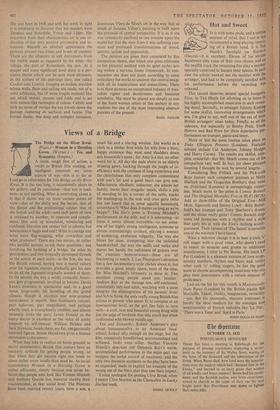Hot and Sweet
This record deserves several special bouquets' First, to Ted Heath for allowing us to listen to his highly accomplished musicians in such reveal- ing detail. Secondly, to arranger Johnny Keating for some skilful, interesting arrangements which are, I'm glad to say, well out of the rut of most British arrangers' ideas today. Finally, to all the sidemen, but especially to Bobby Pratt, Frank Horrox and Red Price for three superlative per formances on trumpet, piano and tenor. More or less the same routine takes place on Duke Ellington Presents (London). Featured soloists include Cat Anderson, Johnny Hodges and Harry Carney. The results are skilful, com- plex, colourful—but Mr. Heath comes out of the comparison very well. In fact, for sheer pleasant listening I thought he won by several lengths. Considering Ben Pollack and his Pick-a-rib Boys feature such competent jazzmen as Matty Matlock and the Teagarden Brothers, their noise on Dixieland (London) is uninspiringly colour- less. Much more to the point is Connie Boswell and The Original Memphis Five in Hi-Fi (RCA). Add to three-fifths of the Original Five—Miff Mole, Signorelli and Jimmy Lytell—Billy Butter' field's hot trumpet and Tony Sbarbaro's drums, and the music really gives! Connie Boswell sings some old favourites with a rhythm and a style that aptly fits in with the Five's dashing accom- paniment. Their version of 'The Saints' is certainly
one of the warmest I have heard. ,
What a welcome change it is to hear a rock n roll singer with a good voice, who doesn't need to resort to screams and, grunts as additional impediments. I refer to Pat Boone. His latest LP Pat (London) is a pleasant mixture of love songs, novelty numbers, rhythm and blues, and, unlike other rock 'n' rolling singers, he has the good sense to choose accompanying musicians who can play their instruments with a certain amount of proficiency. Last on the list for this month is Madetnoiselle from Paree (London) by the British pianist Bill McGuffie. Talent, vitality, imagination, versatilitY —yes. But his spasmodic, staccato treatment is hardly the ideal medium for the nostalgia and sentimentality of French melodies like `La Mer, 'There was a Time' and 'April in Paris.'
ROBIN DOUGLAS-HOME


































 Previous page
Previous page